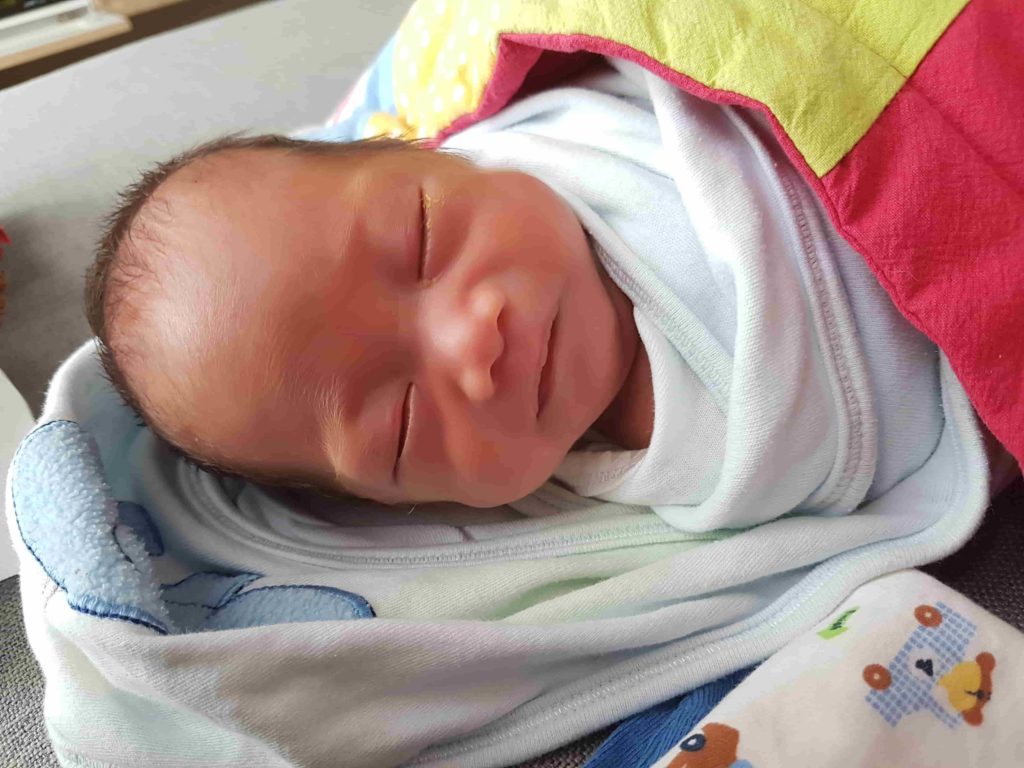
Meghan Markle, Janet Jackson, and Brigitte Nielsen have all had pregnancies at an advanced age. Here’s my story of having a high-risk pregnancy at 40
Doctors don’t use the term ‘geriatric pregnancy’ these days. Instead, when a woman is pregnant over the age of 35 it is referred to as being pregnant in “advanced maternal age.” Meghan Markle, Duchess of Sussex, falls in this category, having given birth to her first child, Archie Harrison in 2019, when she was 38 and her second child, Lilibet Diana when she turned 40. While pregnancies in women over 35 were uncommon generations ago, this trend is becoming more common. With this though, often (but thankfully not always) come fertility issues and high-risk complications including premature birth, preeclampsia and gestational diabetes. I ticked many of these boxes for both my pregnancies with my first child at 37 and subsequently my second one at 40.
Read More: Bump stories: Pregnant Over Age 40
While I was blessed in the fertility department with no trouble conceiving for my advanced age, my body didn’t agree with it. For starters, both my pregnancies were met with gestational diabetes. I snapped out of being a diabetic when I gave birth to my first child prematurely at 32 weeks via caesarean, but I wasn’t so lucky for my second child. Not only did gestational diabetes revisit me despite being cautious about what I ate, but it came earlier within my first trimester. The condition resulted in daily insulin injections to my belly and constant UTIs (urinary tract infection) due to the excess yeast from the increased sugar in my blood. As part of KKH’s diabetic care for pregnant patients, I had to undergo the complete diabetic programme under a strictly controlled diet.
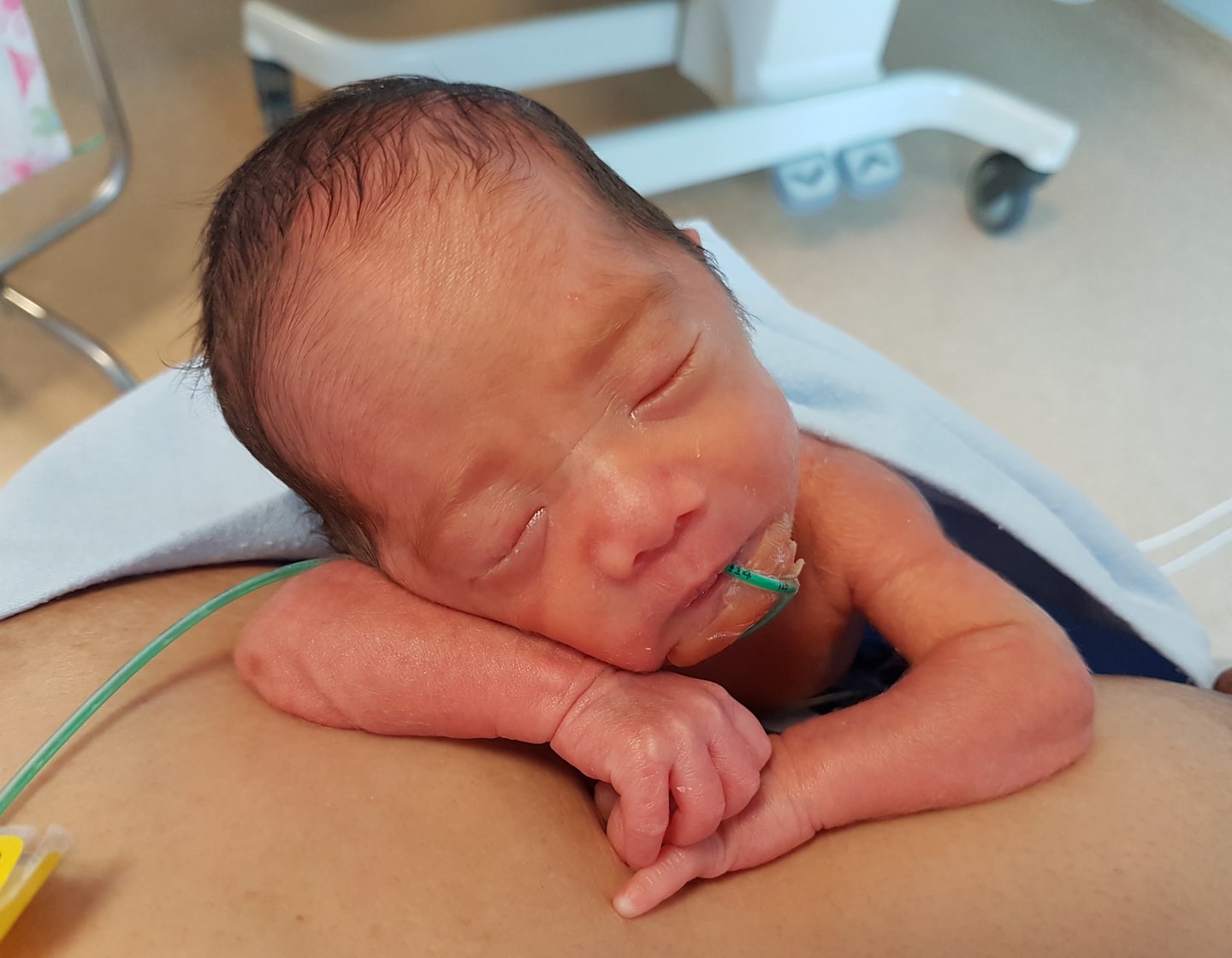
Having a high-risk pregnancy, I was given frequent weekly check-ups after my first trimester. I was also asked to go for further amniocentesis tests after initial scans showed that my foetus had signs of chromosomal abnormalities. Thankfully these came back normal. For the first few weeks, everything went smoothly.
But I should have known better when my belly didn’t seem to be growing bigger vis-a-vis my first pregnancy. My baby bump was unnoticeable. My doctor flagged that the nutrient flow from my placenta to my fetus was worryingly slow. Week by week, the nutrient flow seemed to be slowing down with every ultrasound scan. My doctor cautioned that in the worst case of a discontinued flow, they would need to perform an emergency operation on me and deliver my baby immediately. According to my doctor, it would be better for the five-month-old fetus to survive in an external environment with the latest medical technology than being in the mother’s body if the latter isn’t transmitting oxygen and nutrients to the growing fetus.
D-Day
That unfortunate day did eventually come. And it came with a bigger shock: pre-eclampsia. Perhaps it was God’s grace, but that very day that I had my check-up was the very day that the flow to my fetus stopped. During my routine check-up I was hit with a bad throbbing headache. I put that to inadequate rest from my recent insomnia episodes. The headache got worse as I tried to relieve the pain by constantly rubbing my temples. And then the nurses did a check on my blood pressure. That’s when I was informed that I was down with pre-eclampsia. Things spiralled so fast that everything seemed to pass by in a flash. I was admitted to hospital as my blood pressure had apparently shot to 200, and I was on the verge of going into fits and having a possible brain haemorrhage. It was so fortunate that I was at the right place at the right time, and being at the hospital the doctors were able to avert the life-threatening danger by giving me an injection to forcefully push down my high blood pressure. I felt the immediate surge of heat burning me up from inside and was then knocked out by exhaustion.
The earliest scheduled date for my cesarean was the following morning. Throughout my night at KKH, I was restless and sleepless while being strapped with a doppler to my belly to ensure my fetus’ heart was continually beating. At 7 am the following day, the surgeons successfully delivered my preemie weighing 950 grams at 27 weeks.
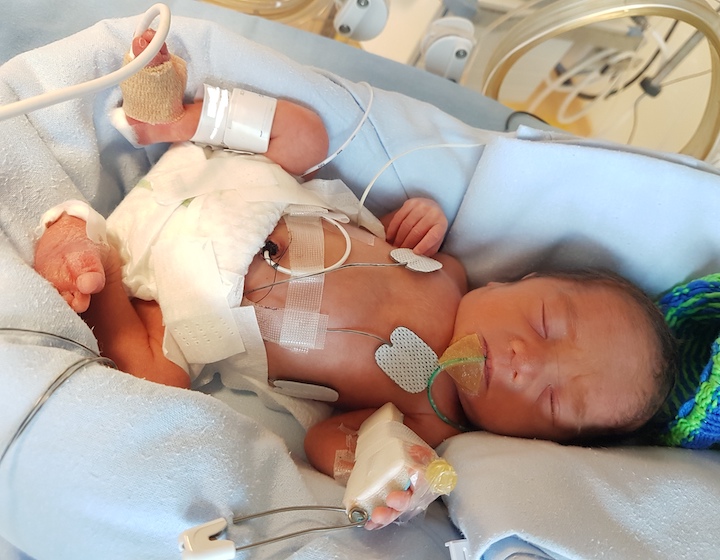
My newborn would spend the next two months in Intensive Care. I was thankful to be placed in the subsidised scheme of KKH as my newborn’s lengthy stay coupled with my frequent prenatal visits and supplements by the hospital, greatly alleviated our financial concerns.
Was I the Unlucky Odd One Out?
Many of my friends who also had pregnancies in ‘advanced age’ had a smooth pregnancy journey just like Meghan Markle seems to have had. They experienced none of the complications that I faced, and their children were birthed at their full gestational age. Perhaps I was just one of the few unlucky ones, after all, statistics have shown that pre-eclampsia affects just 3.6% of pregnancies in Singapore. This was further exacerbated by my pre-existing hypertension and gestational diabetes attributed to my pregnancy.
Read More: How to Manage Gestational Diabetes
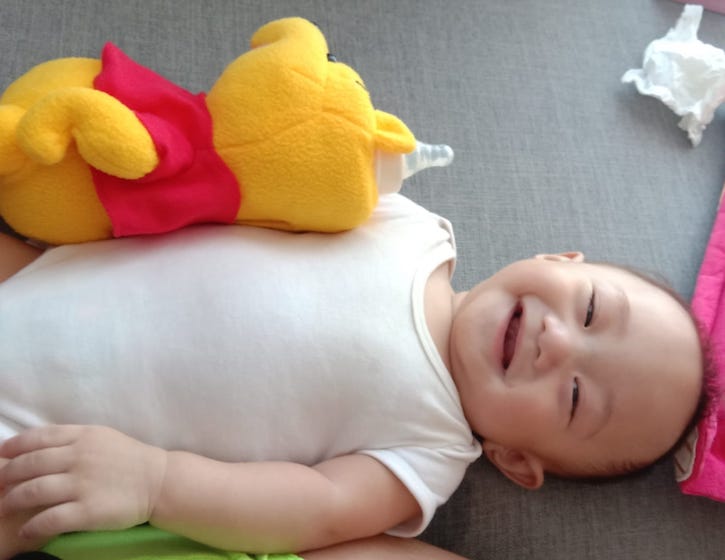
Why did I start so late?
Would I have done things differently if I could have and tried for kids at a younger age? I have actually known my spouse since I was 24 years old and we dated for a full nine years, struggling with our education and jobs to finally be financially secure before committing to family planning. Both my spouse and I were late academic bloomers and spent much of our twenties starting all over again to further our educational qualifications. I was 32 when I graduated with a Bachelors and that same year; we got married. But alas, both our parents’ flats weren’t conducive to having either one of us move in or, bring up a child. So we waited for many years for our BTO flat to finally be ready before we embarked on our family plans.

It hasn’t always been possible for women to make the choice to become a mother later in life. I am grateful for modern technology and all the advances in medicine that meant I was able to safely deliver my babies prematurely and have them looked after in Intensive Care. We may have started late but my kids are now 3 and 6 years old and both of them meet their developmental milestones despite being premature babies. I was advised I wouldn’t be able to have a third child after my last pregnancy due to all the complications I experienced. But that’s ok, my family is complete.






 View All
View All



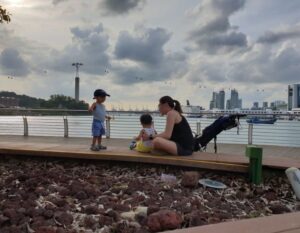

 View All
View All
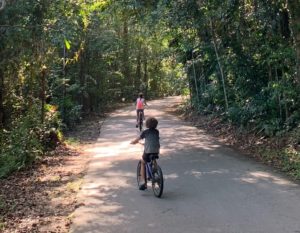








 View All
View All



![[𝗦𝗔𝗩𝗘 𝗧𝗛𝗜𝗦] 𝗙𝗿𝗲𝗲 𝗔𝗰𝘁𝗶𝘃𝗶𝘁𝘆 𝗙𝗼𝗿 𝗞𝗶𝗱𝘀 𝗪𝗵𝗼 𝗟𝗢𝗩𝗘 𝗙𝗶𝗿𝗲𝘁𝗿𝘂𝗰𝗸𝘀! 🚒🔥
Skip the usual mall stroll and check out the Civil Defence Heritage Gallery! It’s free, air-conditioned, and housed in Singapore’s very first fire station, just across from Funan Mall.
Spanning two full floors, the gallery dives into Singapore’s firefighting history, major rescue missions, and the evolution of the SCDF. There are interactive exhibits, immersive displays, and even emergency preparedness tips for the public.
Bonus: Selected fire stations also host Saturday morning open houses with guided tours where you can watch fire gear demos, meet firefighters, and see those high-pressure water sprays in action!
𝗛𝗼𝘄 𝗺𝘂𝗰𝗵? FREE
𝗪𝗵𝗲𝗿𝗲? 62 Hill St, Singapore 179367
𝗢𝗽𝗲𝗻𝗶𝗻𝗴 𝗵𝗼𝘂𝗿𝘀? 10 am–5 pm (Closed on Mondays)
Comment “Fire” or link in bio for more details!
Tag your parent crew and plan your next adventure with the little ones! 👨👩👧👦💥
.
.
.
.
.
.
.
#SGFireStation #SCDFGallery #ThingsToDoWithKidsSG #FreeFamilyFun #SGParents #KidFriendlySG #FiretruckLovers #MuseumAdventure #SCDF #HeritageGallery #SGMums #FamilyWeekendSG #LearningThroughPlay #SingaporeWithKids](https://www.sassymamasg.com/wp-content/plugins/instagram-feed/img/placeholder.png)
